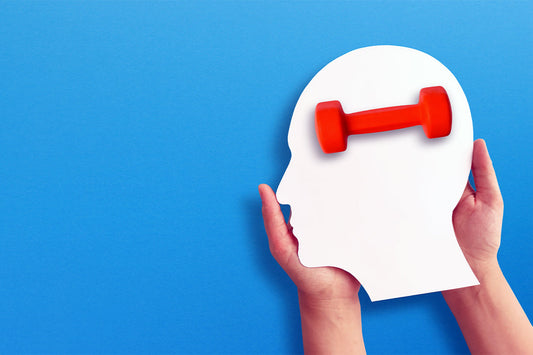We all know the importance of a good night's sleep, but achieving it often feels challenging. Whether it's the endless scroll through social media or late-night binge-watching, these habits can throw off our body's natural sleep-wake cycle. If you're struggling to fall asleep faster or feel well-rested in the morning, it might be time to create a bedtime routine that works with your body, not against it. This blog will guide you through easy and practical ways to build a better bedtime routine that helps enhance your sleep quality, calms your mind, and prepares your body for restful nights.
Understanding the Power of a Nighttime Routine
Our bodies follow circadian rhythms, which act like an internal clock regulating the sleep-wake cycle. Having a consistent routine helps align these rhythms, ensuring a smoother transition into sleep. A well-structured nighttime routine signals to your body that it's time to wind down, which can help enhance the production of melatonin, a hormone that regulates sleep. So, how do you create a bedtime routine that really works?
- Set a Consistent Bedtime and Alarm
Consistency is key when it comes to sleep. Setting a regular bedtime and wake-up time helps maintain your body's internal clock. Try to go to bed and wake up at the same time every day, even on weekends. This keeps your circadian rhythms steady and can make falling asleep easier. Setting an alarm not only wakes you up but can also remind you when it's time to start winding down an hour before bedtime.
- Limit Electronic Devices an Hour Before Bed
The glow from electronic devices like smartphones, tablets, and laptops emits blue light, which can interfere with melatonin production. This can make it harder to fall asleep at your desired time. To create a bedtime routine that supports healthy sleep, try to stop using electronic devices at least an hour before bed. Instead, opt for calming activities like reading a physical book or listening to soothing music.
- Wind Down 30 Minutes Before Bed
Start preparing for sleep by gradually relaxing your mind and body. A 30-minute buffer can help ease you into a restful state. Dim the lights to signal to your brain that it's nighttime, and engage in activities like practicing mindfulness or progressive muscle relaxation. These simple techniques can help calm racing thoughts and release tension from your body, making it easier to fall asleep faster.
- Manage Your Sleep Environment
Your bedroom should be a peaceful retreat that promotes rest. A few changes can make a big difference in how well you sleep. Consider using white noise or soft background sounds to drown out distractions, helping to create a calming atmosphere. Keeping the room cool can also be beneficial, as body temperature naturally drops during sleep. Make sure your mattress and pillows are comfortable to further help enhance your sleep quality.
- Avoid Heavy Meals and Caffeine Hours Before Bed
What you consume before bed can affect your sleep. Large, heavy meals or drinks with caffeine can disrupt your ability to fall asleep quickly. Aim to finish eating at least 2-3 hours before bed, and stick to lighter snacks if you're hungry. Hydration is important, but try not to drink too much water right before bed to avoid waking up in the middle of the night.
- Try Aromatherapy with Essential Oils
Incorporating aromatherapy into your nighttime routine can help ease you into a restful state. Scents like lavender, chamomile, and cedarwood are known for their calming properties. Using essential oils in a diffuser or applying them lightly to your pillow can help relax both your mind and body, making it easier to drift off to sleep.
- Practice Progressive Muscle Relaxation
This simple technique involves tensing and then slowly relaxing different muscle groups in your body, from your toes to your head. Practicing progressive muscle relaxation can be a great way to release tension and prepare your body for sleep. This method is especially helpful if you struggle with racing thoughts or general discomforts before bed.
- Mindfulness and Meditation for Mental Calm
Calming your mind is just as important as calming your body. Practicing mindfulness or guided meditation can help ease mental clutter and restore a sense of peace before bed. These practices can help you let go of any stress or worries, making it easier to transition into a peaceful slumber. A few minutes of deep breathing or a simple body scan meditation can be an effective addition to your bedtime routine.
- Be Mindful of Body Temperature
Body temperature plays a crucial role in sleep. A drop in body temperature signals to your body that it’s time to rest. You can enhance this process by keeping your bedroom cool and using breathable fabrics for your sheets. Taking a warm bath or shower about 90 minutes before bed can also help with this transition, as your body cools down after stepping out of the water.
- Minimize Social Media Usage Before Bed
Scrolling through social media right before bed can be stimulating and affect your ability to relax. The constant flow of information and the blue light from your phone can disrupt your sleep-wake cycle. Instead, try to disconnect from social media an hour before bedtime and opt for quieter activities, like journaling or reading. This small change can make a big difference in how quickly you fall asleep.
Conclusion
Building a better bedtime routine doesn’t have to be complicated. Small changes like limiting blue light exposure from electronic devices, practicing relaxation techniques like progressive muscle relaxation, and keeping your bedroom environment calm and cool can help maintain your sleep-wake cycle and restore sleep quality. Incorporate essential oils, stay mindful of body temperature, and set an alarm to keep your routine on track. With consistency, these habits will help ease your transition into a peaceful night’s sleep and help you wake up feeling refreshed and restored.
Start creating your bedtime routine today, and soon you'll find it easier to fall asleep faster and wake up ready to take on the day!






